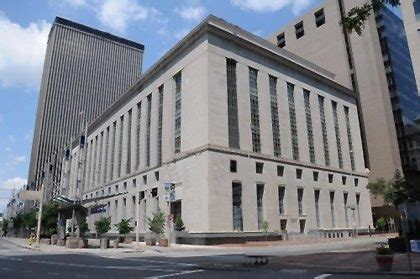Ann Marimow
A federal appeals court on Friday reinstated the Biden administration’s coronavirus vaccination policy for large private businesses, reversing an earlier court ruling that had halted one of the White House’s signature efforts to reduce transmission and drive down case counts.
The ruling by the Ohio-based U.S. Court of Appeals for the 6th Circuit can be appealed to the U.S. Supreme Court, which is likely to have the final say over the rules set to take effect Jan. 4.
The Justice Department had asked the court to clear the way for the policy designed to protect workers at large private businesses from the virus that has killed more than 800,000 people in the United States. A spokesperson for the agency declined to comment.
Under the Labor Department rules, employers with more than 100 workers must require staff to get vaccinated or face weekly testing and mandatory masking. There are exceptions for employees who do not work on-site or with others.
Friday’s 2-1 ruling backs the Biden administration’s authority to issue the emergency workplace directive through the Occupational Safety and Health Administration.
“The record establishes that COVID-19 has continued to spread, mutate, kill, and block the safe return of American workers to their jobs. To protect workers, OSHA can and must be able to respond to dangers as they evolve,” according to the opinion written by Judge Jane B. Stranch.
More than two dozen Republican-led states, private businesses and conservative legal groups challenged the policy. Before the legal challenges filed in courts throughout the country were consolidated at the 6th Circuit, a different appeals court temporarily halted Biden’s plans.
The Louisiana-based 5th Circuit Court of Appeals said the Labor Department exceeded its authority and ordered OSHA to not take any further steps to implement or enforce the rules.
OSHA invoked a rarely used power to issue the policy, which is expected to cover 84 million workers. The Biden administration estimates the rules would save thousands of lives and keep people out of inundated hospitals.
States challenging the policy told the court that the case is one of “exceptional importance” that will “affect the personal health decisions of tens of millions of Americans, coast to coast.”
“It will determine whether private companies — many of which are still struggling to survive the economic carnage inflicted by COVID-19 — must invest resources helping the federal government run a mass-vaccination program,” according to the filing from 27 states, led by Ohio Attorney General Dave Yost.
But the majority of the 6th Circuit panel said the cost of delaying the vaccination policy is potentially high and would harm the public interest.
The directive, they said, “is an important step in curtailing the transmission of a deadly virus that has killed over 800,000 people in the United States, brought our healthcare system to its knees, forced businesses to shut down for months on end, and cost hundreds of thousands of workers their jobs,” wrote Stranch, a nominee of President Barack Obama. She was joined by Judge Julia Smith Gibbons, a nominee of President George W. Bush.
The dissenting judge, Joan Larsen, said OSHA had exceeded its authority to regulate employers’ conduct and should have considered less sweeping alternatives.
“The virus that causes COVID-19 is not, of course, uniquely a workplace condition. Its potency lies in the fact that it exists everywhere an infected person may be — home, school, or grocery store, to name a few,” wrote Larsen, a nominee of President Donald Trump. “So how can OSHA regulate an employee’s exposure to it?”
Read More From The PatriotAmerican
Separately, the Biden administration asked the Supreme Court on Thursday to allow it to fully enforce a nationwide requirement that health-care workers be vaccinated if they work at facilities participating in Medicare and Medicaid. Lower courts have suspended the policy after 24 states filed lawsuits. On Friday, the Supreme Court told challenging states to respond to the administration’s petition by Dec. 30, which would not leave the court much time for a decision.
On Capitol Hill, Senate Republicans pushed through a recent proposal that aims to repeal the vaccine or testing requirements for private companies, saying the rules are unconstitutional and put jobs at risk. Two Democrats, Sens. Joe Manchin III (W.Va.) and Jon Tester (Mont.), joined their GOP colleagues in passing the measure, which is expected to face resistance in the House.

